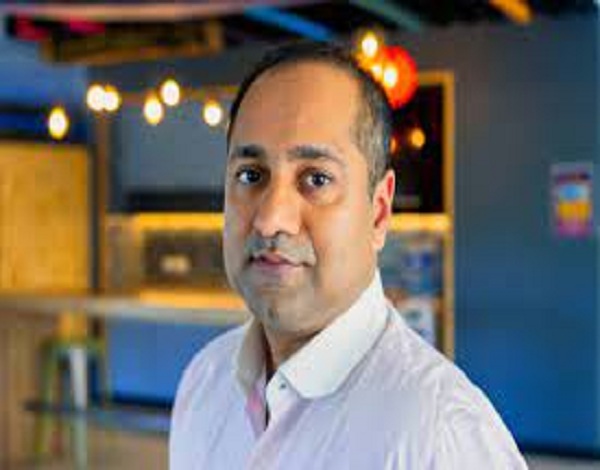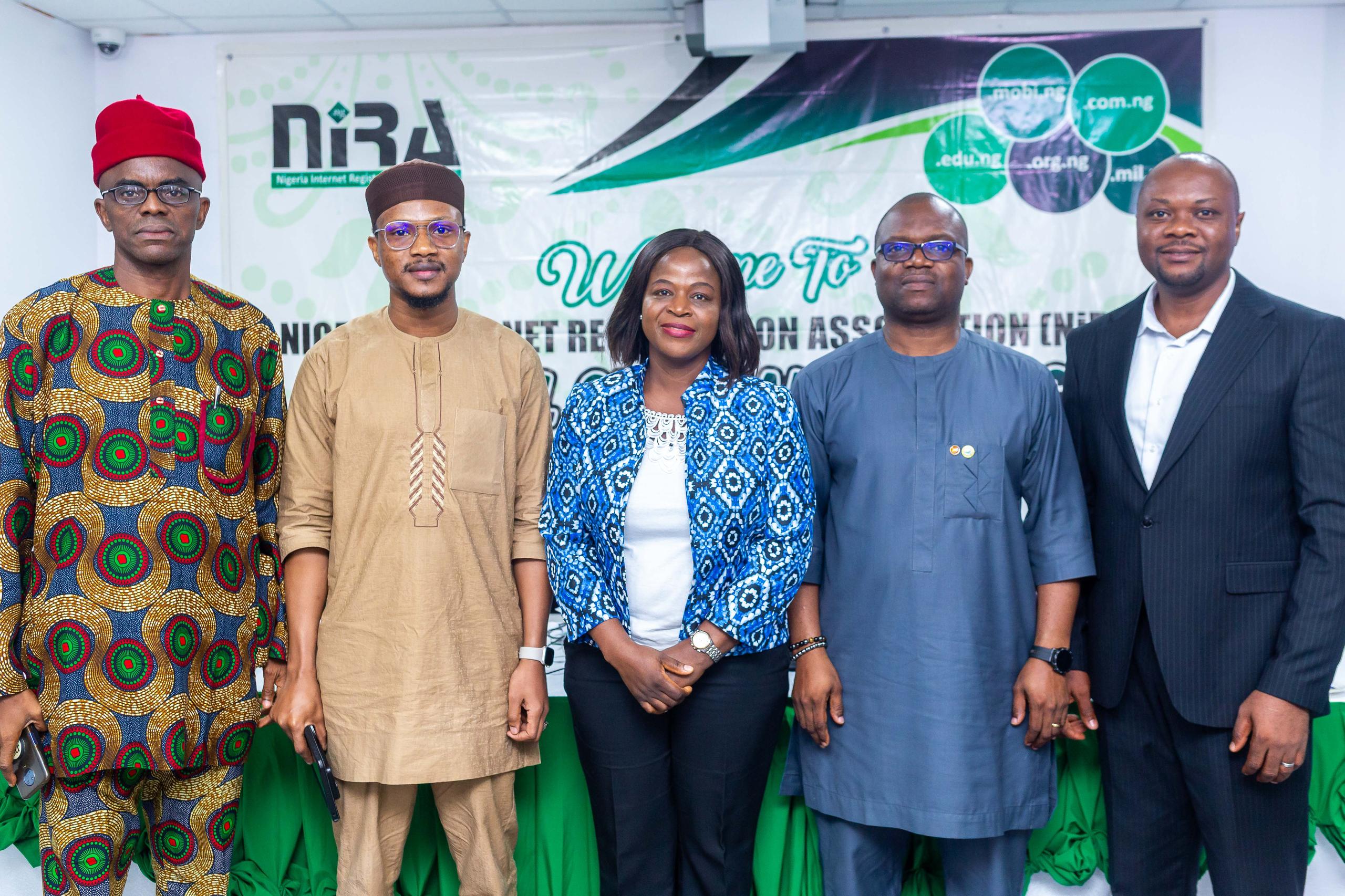Telecom
Cellulant CEO Akshay Grover Steps Down to Focus on Personal Matters

Cellulant, a Kenyan-based payments fintech company, has announced that Group CEO Akshay Grover will leave the company effective January 2024. Current CFO, Peter O’Toole, will oversee the organisation’s operations as acting CEO.

The company has shared that Grover, who initially joined Cellulant as Chief Financial Officer in 2021, and was appointed CEO in the same year, is leaving to “focus on personal matters.”
“Under his leadership, Cellulant has strengthened its position both on the African continent and internationally. His efforts have been pivotal in enhancing the Cellulant brand and driving the company’s strategic objectives,” according to a company statement.
The company shared that it’s in the process of strengthening its leadership team further with many seasoned senior leaders with international and pan-African experience in the payment space.
Cellulant powers payments for over 1,500 global, regional, and local businesses across the continent. At the start of 2023, Cellulant reduced its headcount by 27 employees before cutting another 20% of its workforce in August 2023. It also consolidated and created some roles.
The company has raised $54.5 million in funding. In 2022, Cellulant intended to launch a $100 million series D round of funding, but that plan was shelved.
Telecom
ARCON Probes 9mobile over Alleged N1Bn Advertising Debt

Advertising Regulatory Council of Nigeria (ARCON) is investigating a petition against 9Mobile, one of Nigeria’s top four telecoms companies, over an alleged N1 billion unpaid advertising debt.

In a statement issued at the weekend, the ARCON stated that the petition was filed by advertising agencies alleging that Emerging Markets Telecommunications Services Limited — trading as 9mobile — failed to settle payments for services rendered and has continued to engage new agencies without fulfilling existing obligations.
The regulator identified the alleged activity as a potential violation of the Nigerian advertising code, adding that it might have far-reaching consequences throughout the business.
“It was also alleged that while 9mobile refused to pay or resolve its indebtedness to the agencies, it has gone ahead to brief other agencies to continue its advertising and advertisement business with impunity,” the statement reads.
The ARCON said it would investigate whether 9mobile followed disengagement protocols when transitioning from the owed agencies to new ones and whether there were possible breaches of ethical procedures.
“Advertising debts are beyond agencies,” ARCON added.
“They belong mostly to media houses and third-party vendors/suppliers who are significantly affected by the indebtedness, with multiplier effects on their cash flow and operations.”
The council said it would partner with anti-graft and government agencies to ensure a full investigation and the debt’s resolution — stressing that the borders on economic sabotage.
The ARCON reiterated that the Nigerian advertising industry’s official payment threshold remains 45 days and promised to clamp down on practices that encourage unethical competition and unfair advantage.
“The council will take all necessary actions to eradicate unethical competition and ensure compliance with the Advertising Industry Standard of Practice (AISOP), including adherence to the 45-day credit policy,” it said.
9mobile is a member of the Advertisers Association of Nigeria (ADVAN), and its members are expected to follow advertising regulations and contractual duties within the ecosystem.
Telecom
NiRA Holds 17th AGM, Elects New Leadership to Propel .ng Domain Growth

Nigeria Internet Registration Association (NiRA) has successfully concluded its 17th Annual General Meeting (AGM), reinforcing its commitment to Nigeria’s digital identity.

(L–R): Ogbuefi Remmy Nweke, Member, Board of Trustees, NiRA; Mr. Ahmad Mukoshy, Newly Elected Executive Board Member, NiRA; Mrs. Seyi Onasanya, COO NiRA; Mr. Adesola Akinsanya, President, NiRA; and Mr. Peter Oluka, Executive Board Member, NiRA.
Held as a hybrid event at the NiRA Secretariat and virtually, the meeting brought together over 325 members, stakeholders, and media representatives to review progress and set future goals.
During the AGM, NiRA President, Mr. Adesola Akinsanya, emphasized the Association’s remarkable growth in 2024, including 94,723 new registrations and 61,227 renewals, bringing the total number of .ng domains under management to 212,890. The accreditation of 23 new registrars further strengthened NiRA’s reach and impact.
A major highlight was the implementation of DNS Security Extensions (DNSSEC), enhancing domain integrity and security. NiRA also launched a Registrar Incentive Programme in Q3 2024 to encourage adoption and reward top-performing registrars.
Strategic partnerships were a key focus, with collaborations across government and private sectors. NiRA continued its long-standing relationship with NITDA, engaged with the Nigeria Data Protection Commission (NDPC), and worked with the Lagos Chamber of Commerce and Industry to support businesses. Other partnerships included efforts with the Nigeria Computer Society and Innovation Support Network (ISN Hubs) to drive internet development in Nigeria.
Among NiRA’s recent initiatives were Tech Convergence 1.0, a flagship event exploring technology and creativity, and the 7th edition of the prestigious .ng Awards, recognizing individuals and organizations for their contributions to Nigeria’s digital ecosystem.
The Association also reaffirmed its commitment to Corporate Social Responsibility through the NiRA Kids Foundation (NKF) and .ng Academy, focusing on digital empowerment and capacity building.
The election of new Executive Board of Directors members marked a major step forward, with Mrs. Mary Olaseni, Mrs. Abibat Olatunji, and Mr. Ahmad Mukoshy joining the board, while Mr. Chukwuemeka Fred Agbata and Mr. Destiny Amana assumed new roles. The outgoing board members were recognized for their service and contributions.
The seamless execution of the AGM underscored NiRA’s professionalism and dedication. Moving forward, NiRA remains committed to fostering a secure and resilient digital ecosystem through the .ng domain, positioning Nigeria as a global digital leader.
Telecom
Glo, Huawei, Communications Ministry Bring Digital Services to Abuja Village

Telecommunications and digital services provider, Globacom, has partnered with the Federal Ministry of Communications, Innovation and Digital Economy and Huawei Nigerian Enterprises, to provide digital access to 7,000 remote communities in Nigeria with the commissioning of the pilot project in Isuanin Kura in Ibwa 2, Gwagwalada, on the outskirts of the Federal Capital Territory, Abuja on Wednesday.

The project, which is championed by the Ministry, will deliver 2G/3G/4G services, free public Wi-Fi access, digital healthcare and remote learning capabilities to the over 12,000 residents of the community.
Minister of Communications, Innovation and Digital Economy, Dr. Bosun Tijani, was full of commendation to Globacom and Huawei for supporting President Bola Tinubu’s commitment to addressing the connectivity crisis affecting more than 20 million Nigerians who currently lack basic telecommunication access in the country.
Said he: “If you bring out your phone in many communities, there is no network at all. This is costing the country significantly because people cannot access financial services, medical care, or education”, adding that this also poses governance challenges as disconnected areas are difficult to administer.
“Where you live should not determine your access to opportunity. We are using innovation to ensure every Nigerian, regardless of location, can thrive in the digital age”, the Minister added.
Globacom’s Group Chief Technical Director, Mr. Sanjib Roy, who spoke on the project said the company worked with the Ministry and Huawei to bring up the site by providing the Microwave backhaul link and access to Globacom’s full core network resources and also manage the operation of the site to ensure uninterrupted voice and data services for the community.
“The Smart Education facility allows for young students within the community to receive education remotely, with the teachers being in Abuja or any other part of the world, while Healthcare delivery has been revolutionised through connected medical equipment that enables remote consultations between patients in Ibwa and doctors and specialists in urban-locations”, Mr Roy explained. The site and all the equipment are powered by solar thereby ensuring clean environment and uninterrupted power supply.
During the inauguration, the system’s effectiveness was demonstrated with the leader of Isuanin Kura, Ibwa 2 Community, Chief Abubakar Bamaiyi, having a live consultation with a medical doctor in Abuja, while the Minister and other guests watched as the students in the local school were being taught via online video by a teacher in Lagos, using equipment provided by Huawei.
Mr Kazeem Kaka, Globacom’s Head of Division, North West, who also spoke at event, said, “For Globacom, this is a continuation of our long-standing mission to democratize access to communication. Since 2003, we have remained at the forefront of efforts to lower the barriers to connectivity—making telephony, internet, and data services more accessible and affordable for all Nigerians.
“Today’s launch reinforces that commitment. We are particularly excited about the impact this initiative will have on education, healthcare, and economic empowerment of Ibwa people”.
In his remarks, Mr Terrens Wu, Managing Director, Huawei Nigerian Enterprises, said his company was proud to be part of the initiative to provide connectivity, and promote learning and healthcare in rural communities through digital technology. His company later gave out 120 affordable smartphones to the community to help them have access to telephony.

 General News2 days ago
General News2 days agoUche Uzoebo, SANEF CEO Makes Case for More Financial Inclusion Strategies Targeting Women

 Broadcasting2 days ago
Broadcasting2 days agoACAMB Champions Bankers Wellness with Aerobics Fitness Session

 News2 days ago
News2 days agoUK Minister for Africa Visits Nigeria to Deepen Strategic Partnership

 General News2 days ago
General News2 days agoHydrogen, Lagos State Touch Thousands of Business Owners with “Healthy Heart, Healthy Business” Outreach

 E-Business2 days ago
E-Business2 days agoSurvey Reveals Marketing Leaders See Strong Potential in gTLDS Despite Knowledge Gap

 News8 hours ago
News8 hours agoFirst Asset Management Receives 2024 Fund Manager Award

 General News8 hours ago
General News8 hours agoNigeria Relaunches National Talent Export Programme to Unlock $1 Trillion Global Outsourcing Market

 Telecom8 hours ago
Telecom8 hours agoNiRA Holds 17th AGM, Elects New Leadership to Propel .ng Domain Growth






















